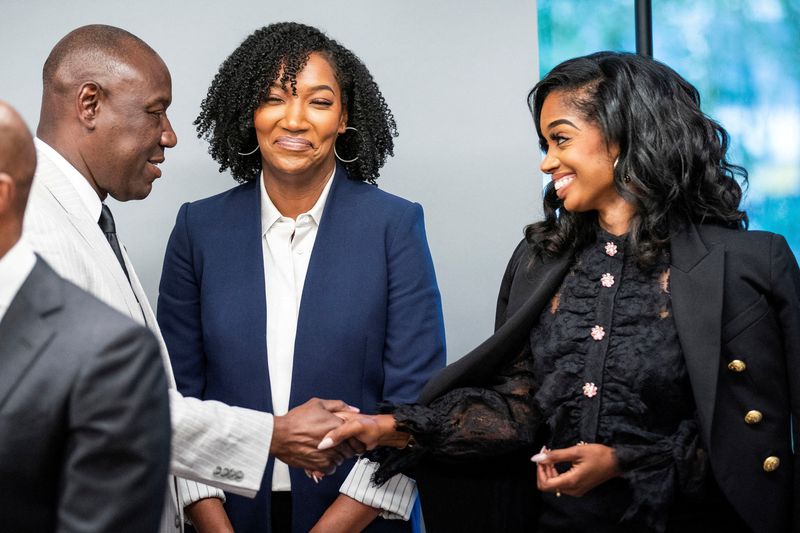By Nate Raymond
(Reuters) - A venture capital fund on Wednesday urged a U.S. appeals court to allow it to resume a grant program that awards funding to businesses run by Black women and reject an anti-affirmative action group's claim that it discriminates based on race.
During a nearly hour-long hearing, lawyers for Atlanta-based Fearless Fund told the 11th U.S. Circuit Court of Appeals that it had a constitutional right to express its belief in the importance of Black women to the economy through charity.
Fearless Fund attorney Jason Schwartz said that right under the U.S. Constitution's First Amendment trumped claims by Edward Blum's American Alliance for Equal Rights that the program's criteria violated a Civil War-era law barring racial discrimination in contracting.
"Americans speak with their money," he said. "They magnify their message with their money. You can spend it to send whatever message you want."
But a lawyer for Blum's group, Gilbert Dickey, countered that by only considering Black women for grants, Fearless Fund had adopted a "categorical racial bar" against other applicants in violation of Section 1981 of the 1866 Civil Rights Act.
The arguments marked the latest step in a closely-watched lawsuit that Blum's group filed after a different organization the affirmative action opponent founded successfully convinced the conservative-majority U.S. Supreme Court in June to bar the consideration of race as a factor in college admissions.
The lawsuit centers on the fund's Fearless Strivers Grant Contest, which awards Black women who own small businesses $20,000 in grants and other resources to grow their businesses.
According to the Fearless Fund, businesses owned by Black women in 2022 received less than 1% of the $288 billion that venture capital firms deployed. The fund, headed by CEO and founding partner Arian Simone, says its goal is to address that disparity.
While a lower-court judge declined to block Fearless Fund's grant program, a 2-1 panel of the 11th Circuit in September temporarily enjoined it until a different three-judge panel could hear the alliance's appeal on Wednesday.
Two of the judges on Wednesday's panel were appointed by Republican former President Donald Trump, and both sharply questioned Fearless Fund's lawyers on its claims that its charitable giving was constitutionally protected.

"Just because it's a charity, it falls outside of (Section) 1981, that can't be right," said U.S. Circuit Judge Robert Luck, the only of the three judges who belonged to October's panel.
U.S. Circuit Judge Robin Rosenbaum, an appointee of Democratic former President Barack Obama, appeared more sympathetic to Fearless Fund, saying if the entire point was "to send the message that Black businesswomen are worthy and have been overlooked and left out, then why isn't that speech?"